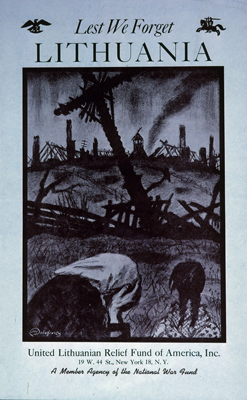- History
- Military

“Russia is not a superpower, it’s a super problem,” the Lithuanian Minister of Foreign Affairs, Linas Linkevičius, said on November 18, ten days after Donald Trump’s election as president of the United States. “As a child I still remember the sound of the tanks rolling through the streets of Vilnius, so even my generation—and I’m 34—still remembers when the Russians were here as a Soviet army. But they were Russian troops and they were invading us, so the last thing we are on this subject is naïve.”
There is no indication that the Trump Administration will be naïve when it comes to Vladimir Putin’s ill-disguised ambitions in the Baltics. With 26% of both Estonia and Latvia ethnically Russian and 6% of Lithuania, the opportunities for disruption and even irredentism are endless, should Mr. Putin wish to pursue them. The real worry is that senior figures in the Administration will simply not support the Baltic States if Russia destabilizes them. “Estonia is in the suburbs of St. Petersburg,” Newt Gingrich has said recently. “The Russians aren’t gonna necessarily come across the border militarily. The Russians are gonna do what they did in Ukraine. I’m not sure I would risk a nuclear war over some place which is the suburbs of St. Petersburg. I think we have to think about what does this stuff mean.”
One can take issue with Mr. Gingrich’s grasp of geography—Estonia is 85 miles from St. Petersburg at its closest point—but it is the history that matters most, for history is current affairs in the Baltic States. Historically, they are totally Western states. After Vytautas the Great became the Grand Duke of Lithuania in 1392, the country became one of the largest in Europe, and in co-operation with Poland defeated the Mongol menace. It confederated with Poland in 1569, which was a successful union for over two centuries until smashed by the three late 18th-century partitions between Russia, Austria, and Prussia.
Lithuania has a long history of resisting Russian oppression, and even supported Napoleon in his 1812 invasion campaign. Only twenty years after winning its independence in 1920, the Baltic States were overwhelmed by Stalin, as a result of the Nazi-Soviet Pact. On that occasion the U.S. Secretary of State, Sumner Welles, made the brave and principled statement that “The people of the United States are opposed to predatory activities no matter whether they are carried on by the use of force or by the threat of force. … The United States will continue to stand by these principles, because of the conviction of the American people that unless the doctrine in which these principles are inherent once again governs the relations between nations, the rule of reason, of justice and of law—in other words, the basis of modern civilization itself—cannot be preserved.”
It’s a far cry from “I think we have to think about what does this stuff mean.”















